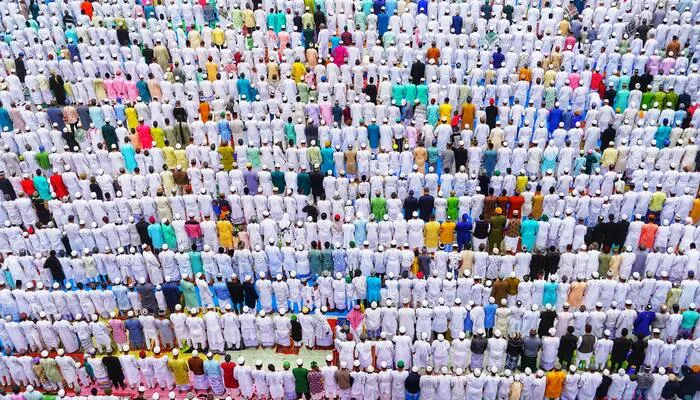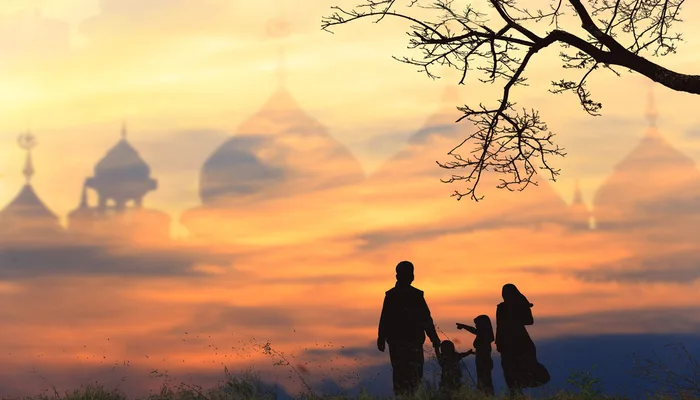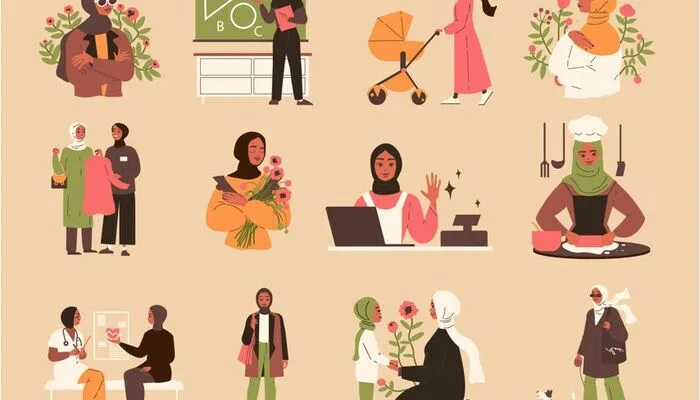Life amid coronavirus: same life, new story
What will happen after coronavirus? When will life get better?

2020 has been a tough year for everyone and so many changes have become normal and a part of our lives. Masks and sanitizers have become an essential part of our everyday lives and it feels quite normal now. But now that the year has changed and we all are thinking to ourselves the same questions again and again ‘will life ever be normal again?’
With lockdown restrictions, a little eased, can we say and hope for a life that was before 2020? Or we have to make room for more changes now? This has been a matter of debate for many people for quite some time and ten BBC correspondents also offer their thoughts on life after coronavirus.
Dependence on Technology is going to be stronger than we thought – Zoe
Zoe Kleinman, a technology reporter, suggests that we will be dependent on technology for a much longer period of time. Digital platforms have become the way of life for us, whether it is the WhatsApp groups or conferences and meetings on zoom.
A little earlier, in the post covid world everybody was concerned about the screen time for kids and adults, however, the tables turned and life after covid 19 has taken a new turn. Everything has shifted to online, whether it is work and job for adults or learning for the kids. This has brought a huge shift in the change of attitude as the parents are now more positive and relaxed with the screen time their children avail. And this kind of change is not going away anytime soon.
Read, Court indicts Ahsan Iqbal in Narowal Sports City Complex corruption case
As technology and internet service has become essential, it is in demand more and more. BT declared that they are going to roll out ultrafast broadband fibers to 227 rural communities in the UK. As said before, the changes are going more in favour of technology and technology-based living which is not going to change for quite some time.
Zoe also says that the lines have blurred between work and home have blurred like never before. He says ‘I fear a world without the sun” and that we should keep a check on our balance between work and home.
The new era of Virtual Lessons – Brenwen
The education editor, Brenwen Jeffereys questions the nature of virtual lessons and the world after coronavirus. The shift from traditional school settings with classes and breaks, to online learning on different online platforms is grand in its nature. Brenwen says that more than 90% of children are out of their classes and studying at home. The research suggests that 59% of children in the UK have their own smartphones and laptops. Online learning to them is easily available.
But another aspect is on the rise when it comes to the topic of education and that is the rise of another kind of poverty, known as digital poverty. This digital poverty is locking many children out of the learning process. As even in the developed nation such as the UK, a significant minority do not have access to their own digital device which proves to be a hurdle in the way of online working and learning.
This might interest you, NASA shares pictures of the world during COVID-19 from Space
However, the department of education is trying to provide laptops to students to make the process of learning and education easier and accessible to everyone. But this is a temporary solution.
The Universities face a completely different kind of challenge. The British Universities are world-famous for their quality of education and degrees due to which they receive a significant number of students from different countries. Just from China, they receive 120,000 students each year. However, due to pandemic and the trend of online learning, this number will likely decrease. According to research by University, there is an immediate drop in the number of international students and it could cost 2.5 billion pounds and lead to 30,000 job losses.
What about the rush hour? – Simon
Simon Jack, the business editor, ponders what is our world coming to after sustaining the effects of Covid-19 on the business community. More and more people are working online and doing home-based jobs, which will result in less transport and possibly not now but will in future, the rush hour be obsolete and history? No one knows that for sure now but these thoughts are circling in minds.
Read, Mohammad Aamir’s Resign Sparks So Much Response
The digital transformation is getting faster, with banks transferring all the systems online, there is more automation and artificial intelligence involved to approve loans, profile customers, and improve delivery. Also, the governments are trying to cut their imports and investments from other nations to balance their economies and save them from the crisis.
The hope for the business world, after corona, is to return to normal but we all know that is not going to happen anytime soon.
Higher prices but Fewer Flights? – Tom
Tom Burridge who is the transport correspondent suggests that the future of airlines seems a little bleak because of the world after covid 19. Some airlines might not even survive and even if they survive they will face the consequences of fewer flights. As most of the businesses are cutting their costs and moving things online, more conferences are being held on zoom, so apparently, there is no need to fly a thousand miles and pay such high prices for flights when the work can be done from home. Can it be said then, that the trend of online business will be the cause of the decline of airlines?
Also, Apple cautions: iPhone 12 can affect the “pacemaker” in the heart
A pattern is emerging which suggests that there will be less aviation, which means the ticket prices will increase. Many airlines have announced that they will leave some space between the passengers such as they will leave the middle space empty so that passengers can keep a social distance from each other. But a plane with a lot of empty seats is going to be expensive, there is no doubt about that.
As far as daily transport is concerned, fewer people are going to leave their homes because of the lockdown and also because of the availability of working from home. So there might be fewer people on the streets. Also, the trend of electric scooters and cycling seems to be making a comeback in this world.
More, First Space Museum to set up in Pakistan
New hope for greenery or demand for fuel? – David
Things going on in the world of the Pandemic hit have been a nightmare for so many reasons but science editor David Shukman is looking on the brighter side and suggests that maybe because of the pandemic, people have started to look at life differently. Because much of the population is working from home, and also because of the lockdown, there are fewer people and cars on the street resulting in less pollution and less carbon.
This is one of the positive changes that the pandemic has brought. People have started to think that this is our world and we can make the planet greener again and packed in their homes, they feel that the world is now calmer and greenery would be nicer and within reach. Levels of gas and nitrogen dioxide have fallen across China and Europe.
read more, Another bout of cold weather to hit Karachi
However, there are two conditions that can happen. One is that people will realize their mistake and try to heal the planet as much as they can. But another condition seems to be different. The crisis has happened before and after the crisis, there is strong demand for fuel and oil. This could also happen after the pandemic crises and a fuel frenzy might take place as the governments will try to stabilize economies through this fuel.
No matter what the condition, one thing is for sure that this pandemic has made us realize that government and citizens both can act in a responsible manner for the betterment of society if need be.
- Future of Football – Natalie
Well, there is nothing that has been left unaffected in the pandemic. The sports industry is no exception as well. Natalie Pirks, the sports correspondent says that even though sports is the source of fun and entertainment for many but as an industry, it is the means of employment and provides jobs to thousands of people worldwide. But this pandemic had badly affected this industry.
How will life change after coronavirus? is of great concern to many sports events like the Olympics that have been postponed. Wimbledon, Tennis tournament, has also been canceled. The players are getting wage cuts and the organizations are also cutting costs that they used to invest heavily in advertisements and promotions, Moreover, broadcasters and managers have lost a significant amount of money amid the world after the pandemic.
Also, WhatsApp’s new feature is rolling out
The fans are also not happy with the current conditions as they are unable to go to stadiums to watch their favorite sports. Many sports are taking place in empty stadiums without the thrill of a live audience. Many game managements are worried that how are they going to maintain social distancing in games like Rugby.
The future of the sports industry is not clear but the present scenario is suggesting that there will be more problems and complications for the governing bodies regarding the management, costs, and broadcasting services.
- The fashion industry in distress
Business correspondent, Emma Simpson ponders over the effect of a pandemic on the fashion industry and fashion business. Industries have gone out of business due to the pandemic. The rise in prices, decline in sales, and competition have made structural changes in the fashion houses. It is obvious that after this crisis, people will be more conscious about spending what they earn and affording value dresses is not going to be easy for the buyers.
Sellers are also not content with the situation because many outlets have been shut and the remaining ones are also struggling to keep up with the changing atmosphere. If the situation does not get better, they will also think about shutting down their outlets.
This might interest you, Sikkim: Clash ensued once again between Chinese and Indian Troops, left Indian soldiers red faced
But maybe after lockdown, people will be interested in buying new fashion items that they haven’t been able to during the lockdown. So, the sales might go up but because people have suffered through pandemics, it could also result in people not buying anything at all as they want to save more. And because they have realized that they can live without some clothes for maybe a little more time.
So, does it mean that we are not going to buy new clothes? Or we are going to buy but not as much as we used to? The answer to these questions remains ambiguous until the air becomes clear.
- 50-50 attitude towards Arts – Will
Since we are discussing the future of everything, Will Gompertz, the Arts editor also discusses the future of Arts after the pandemic. In this pandemic, it has been realized and now everyone is of the belief that Arts has helped them through the pandemic through movies, songs, and art in any form.
Will says that there is a 50-50 attitude towards arts. 50% people think arts will flourish and it will come back stronger than ever because people have been deprived of cinema and theatres for too long, now people want to physically go and experience the artistic feelings which will result in the flourishment of cinema and theatre business.
New Year’s celebrations have started
But the other 50% says that after the pandemic, the arts in its physical form is likely to suffer the most. Most of the art is being produced for streaming platforms like Netflix that people can enjoy from the comforts of their home so it is unlikely that people would want to change that. Also, the Arts council might sell off artworks which will lead to joblessness.
Will believes that there will be a balance and that the art industry will flourish. The producers will take time with the content and production. There will be problems like cost cutting but history tells us that after every dark era, there is a force of arts, and a lot of talented artists come to the front to save the industry.
Did you know? Medina enlisted as the world’s healthiest cities, WHO
- Will the sense of neighborness prevail? – Mark
Home editor Mark Easton looks back at history and says that the UK has been through a lot of hardships and after the world war and 1930s depression, there was a sense of togetherness that emerged which developed the qualities of sense of duty and extreme work ethic in the people of UK.
Before the pandemic, it was observed that people were becoming more individualistic in their lives being centered just around them, their job, and lifestyle. But after the pandemic, and during the lockdown, people have realized the importance of relationships, and people wish for some sort of contact and meetings with the loved ones as the time they are spending in quarantine is urging them to ask the same question, will life ever be the same?
Did you know about the Interest-free loans for Private schools?
Every Thursday, the clapping for key workers have brought people closer to their roots and towards each other. It seems that people are finding the new lifestyle around meaningful relationships important and attractive. People are more sound about their neighbors and spending some time with them through their balconies.
But is it going to last just around lockdown? These behavioral norms are not going to stay forever? After the lockdown, will people be so busy again to make time for their neighbors? The answer is 50-50 but the hope is for the better, a more involved society.
- Change in behavior towards the overlooked – Alison
Social affairs correspondent, Alison Holt is looking at the ‘overlooked’ in society’s life after corona. Before the pandemic, the care for the old and aged people was on the decline. The aging population was suffering. For years, they were underfunded, low paid, and had staff shortages. The governments also failed to reform this system and care for the aging population.
read more, Erdoğan inaugurates the launch of a warship for the Pakistan Navy under MILGEM project
However, now after the pandemic has hit, it came to the knowledge that the older population needs more care because the virus affects elderly people more than young people. So, the aged and vulnerable citizens were cared for in care homes and communities.
Also, the front line workers were also being overlooked. Proper equipment was not being provided and tests were also slow. The situation has got better but the change is slow. Will it remain like this with the rising death toll every day or will the government take notice?
More here, Protesting Farmers hoist their flag over Red Fort in Delhi, One farmer killed in a clash
















